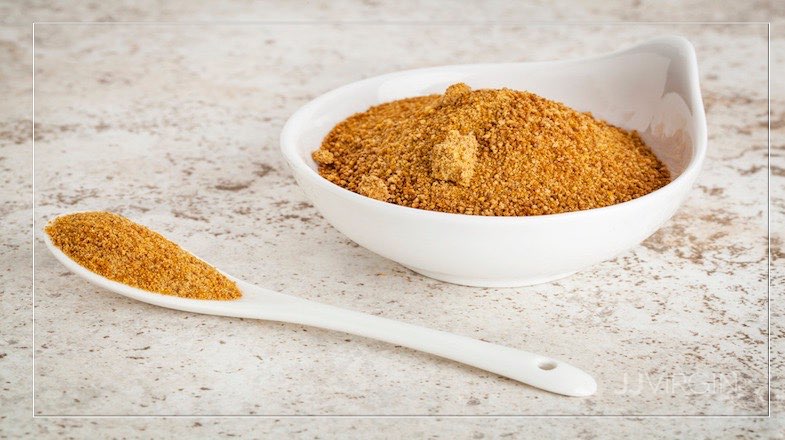I've been getting this question a lot lately. I wrote this last year to address coconut sugar, which has become the “it” sweetener for many health-conscious folks. Simply put: Just because a sweetener claims to be low-glycemic does not make it healthy, as I'll explain here.
Is coconut sugar a healthier sweetener or just the latest health impostor?
Manufacturers certainly position it as the former: they claim because coconut sugar comes naturally rich in minerals, antioxidants, and fiber, it provides a healthier alternative to sucrose or table sugar.
Another selling point is that coconut sugar has a glycemic index of about 35, whereas table sugar registers about 60. The glycemic index is a measure of how quickly a food raises your blood sugar levels. You’ll remember I said The Virgin Diet is a low-glycemic, not a no-sugar diet, and that I always want you to choose lower-glycemic foods.
Like table sugar, coconut sugar is a blend of glucose and fructose. Only glucose registers on the glycemic index. Nearly every cell in your body can metabolize glucose.
Only your liver, however, can metabolize fructose. That’s why fructose doesn’t raise your blood sugar: it goes straight to your liver to metabolize. Except that your liver doesn’t do such a hot job metabolizing fructose and inflammation often results.
Fructose might be the most metabolically damaging sugar on the planet. We have studies showing fructose contributes to insulin resistance, diabetes, heart disease, and obesity.
You see, your liver eventually repackages that fructose as triglycerides – better known as fat – for storage. Your storage unit is usually around your midsection.
Simply put: whether you want fast fat loss or to avoid metabolic syndrome, fructose should not be a part of your diet.
The one exception is fruit, which contains fructose but also comes packaged with fiber, phytonutrients, vitamins, and minerals. Even then, I want you to limit fruit and stick with lower-glycemic choices. Contrary to what some diets argue, fruit is not an all-you-can-eat food.
I can’t help thinking of agave, another low-glycemic “healthier” sweetener that’s incredibly high in fructose. How agave ever became “healthy” is pure marketing genius.
While not quite as high in fructose as agave, coconut sugar contains nearly as much fructose and calories as table sugar. Like honey, high fructose content overshadows the few nutrients it provides. Coconut sugar can also increase cravings and make your sugar habit difficult to overcome.
Don’t be fooled by fancy health store organic coconut sugar or whatever the latest “healthy” sweetener might be.
What sweetener do you use? Have studies or other information changed your mind over the years about artificial sweeteners and certain so-called healthy sugars? Share your comments below. I'd love to hear from you.
References and Further Reading
http://www.cabdirect.org/abstracts/19930319960.html;jsessionid=B2E789F6A2D575B7D2325E76E9328040
http://www.marksdailyapple.com/the-definitive-guide-to-sugar/#axzz2c4FbRdAs






